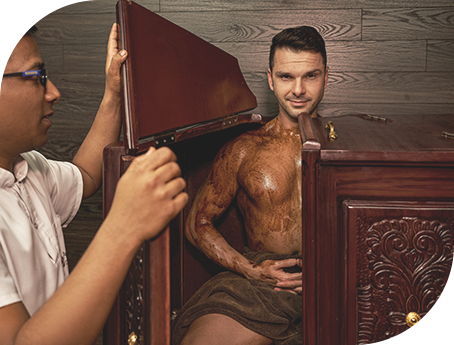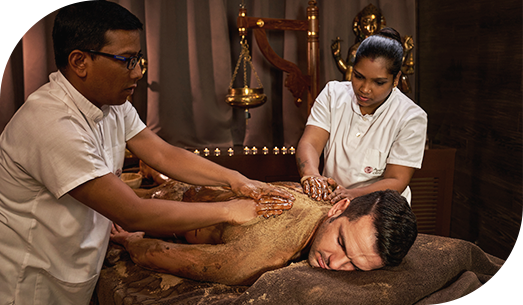Kama Ayurveda
Ayurveda is not limited to medical science, but extends its scope to life science.
Maintaining the balance of physical, mental and spiritual energy in every human act is the golden key that Ayurveda can offer.

What is the Ayurvedic regime?
- Dinacharya (daily regime)
- Ritucharya (seasonal regime)
- Ethical regime
When following the prescriptions of all three regimens, one can enjoy full self-realization and pain relief.
Dinacharya: Ayurveda daily routine
It is associated with the daily practice of certain prescriptions to maintain a specific rhythm of the system (body).
If all activities are in line with the rhythm, the individual organs and systems remain in good health.

Dinacharya gives the following instructions:
Ritucharya: seasonal regime in Ayurveda
With more heat, the plants produce more bitter, astringent and spicy flavors, so this type of food can be consumed seasonally.
Cold weather is suitable for sweet, salty and sour flavors that are stronger and increase the body’s energy.
Spring
- Weather – moderate temperatures, high humidity;
- Effect on doshas – increase of Kapha, decrease of Vata;
- Major diseases – runny nose, sinusitis, respiratory infections;
- What to avoid – cold food, sweet and salty, napping during the day;
- What is recommended – bitter and hot drinks, daily exercise;
- Strength and immunity – intermediate level;
- Panchakarma – Nasya therapy and healing enema (Basti).
Summer
- Weather – high temperatures;
- Effect on doshas – increase of Pitta, accumulation of Vata, decrease of Kapha;
- Major diseases – fever, diarrhea, dysentery, boils, skin rashes;
- What to avoid – hot and spicy food, prolonged exposure to high temperatures, intense exercise;
- What is recommended – sweet and bitter fruit juices, raw salad, steamed salad, afternoon nap;
- Strength and immunity – low level, poor appetite;
- Panchakarma – Virechana (caused laxative effect).
Autumn
- Weather – moderate temperatures with cool and dry winds;
- Effect on doshas – accumulation of Vata, gradual decrease of Pitta, gradual increase of Kapha;
- Major diseases – fever, skin rash;
- What to avoid – hot food, too much exercise;
- What is recommended – soft drinks, foods with sweet, bitter and astringent taste;
- Strength and immunity – medium level;
- Panchakarma – Virechana (caused laxative effect).
Winter
- Weather – very cold;
- Effect on doshas – deterioration of Vata, accumulation of Kapha;
- Main diseases – fever, runny nose, sinusitis, dry skin;
- What to avoid – hot food, too much exercise;
- What is recommended – appropriate exercises, massage with oil, heavy, greasy food with sweet, sour and salty taste;
- Strength and immunity – good level;
- Panchakarma – massage with oil, nasal drops, healing enema.


